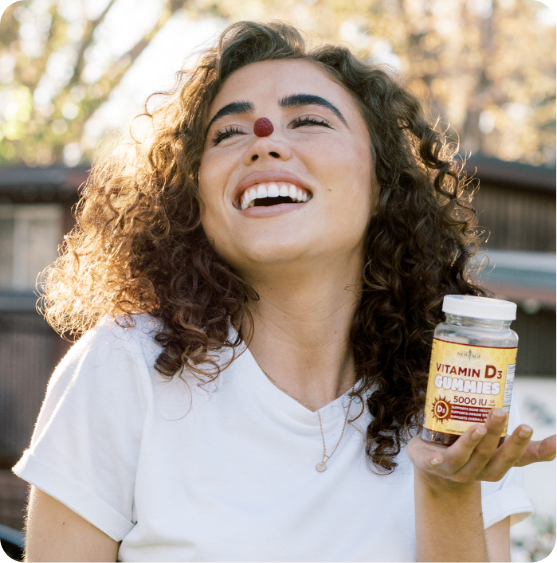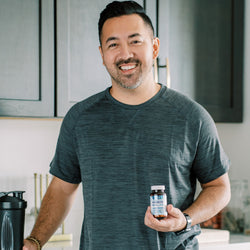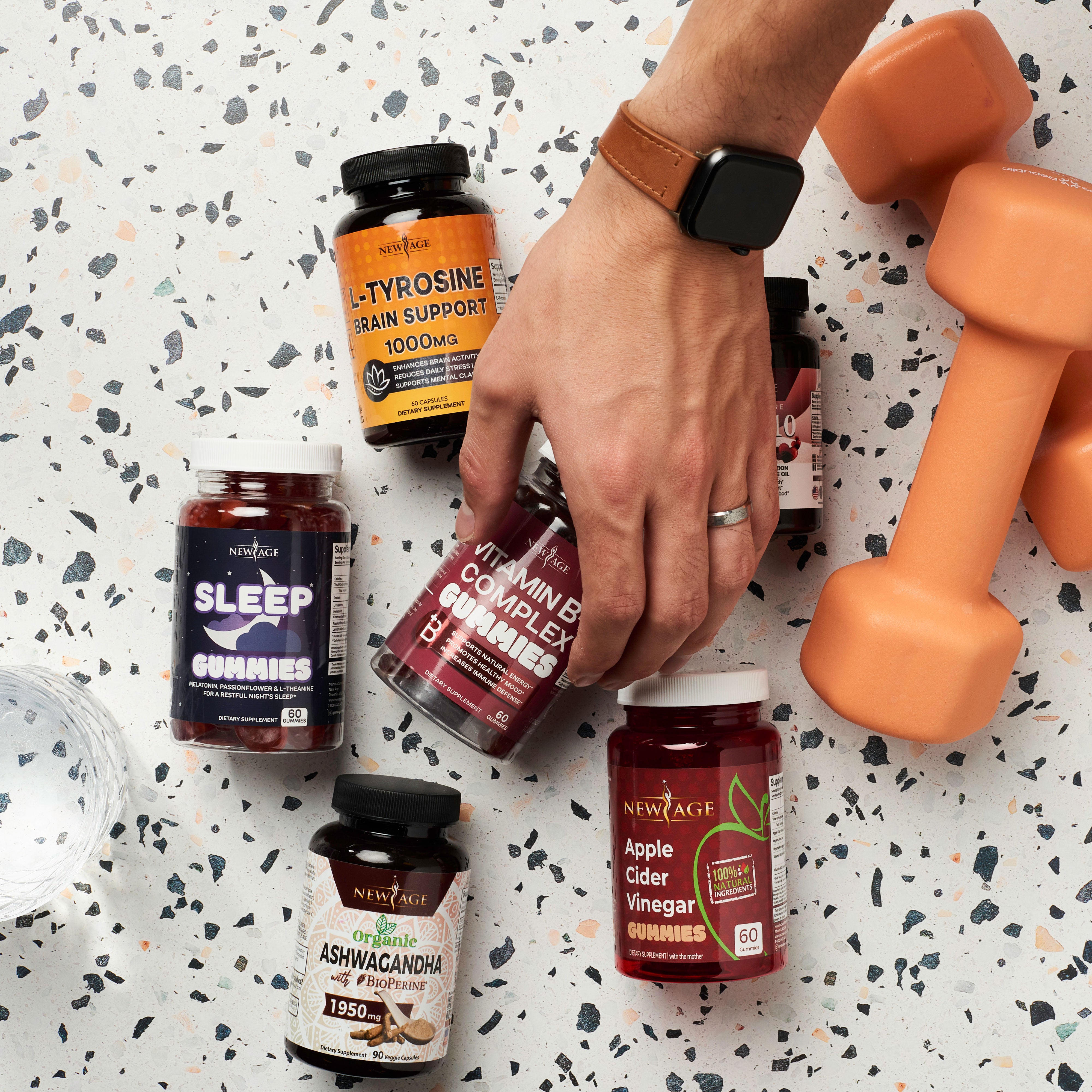
Overview
Our immune system protects us from fungi, bacteria, viruses, and other microbes in order to defend us against illnesses. The immune system is a complex network of organs, cells, and various proteins in our bodies that act in a coordinated manner to protect our bodies. You may have noticed that some people get sick during the flu or virus season, but others don’t get sick even when those around them are contagiously ill. If you are wondering why some are prone to catching colds and viral infections, while others don’t get sick as often, it is all thanks to the incredible immune system built into each of our bodies.
The immune system is the body’s first line of defense against foreign microorganisms from entering our bodies. The stronger your immune system, the less chances you have of becoming ill.
What Can Weaken Your Immune System?
Some groups are more vulnerable to their immunity being compromised. For instance, the elderly, infants, those on immunosuppressive therapy like transplant or cancer patients, and those with medical conditions such as obesity and diabetes can be far more susceptible to infection. Additionally, some habits can also weaken your immune system including:
- Dehydration
- Lack of physical exercise
- Stress
- Obesity
- Inadequate sleep
- Poor diet and eating or drinking too much sugar
- Smoking
- Excessive alcohol intake
5 Simple Ways To Boost Your Immune System
1. Take Probiotics
Probiotics are yeast and live bacteria that are good for you, especially for your digestive system. Probiotics are usually referred to as good or helpful bacteria. This is because they help maintain your gut health, they do so by maintaining a balanced growth of good bacteria in your gut. This allows your gut to create a healthy community of microorganisms that boosts your body's overall immunity.
Various types of bacteria are classified as probiotics, and they all have different functions. However, the most common probiotics are classified as:
a. Lactobacillus- This is one of the most common probiotics and can be found in yogurt, cheese, or fermented foods. Different strains can help with diarrhea and can help those with the digestion of lactose contained in fermented dairy products for those suffering from lactose intolerance. This bacteria produces lactic acid, which helps to prevent the growth of harmful bacteria.
b. Bifidobacterium- It can be found in dairy products and can also be found in salami, cheese, olives, and sauerkraut. Foods rich in fiber, such as blueberries, apples, artichokes, pistachios, and almonds, can help your Bifidobacteria thrive. This probiotic can ease the symptoms of irritable bowel syndrome (IBS). Research also shows that Bifidobacterium probiotics can also reduce inflammation in those with ulcerative colitis, inflammatory bowel disease, psoriasis, and chronic fatigue syndrome.
2. Exercise Regularly
Exercise can stimulate and strengthen the immune defense system. Exercise has an anti-inflammatory effect; thus, a moderate amount of physical activity enhances immune function above the normal level. On the contrary, irregular and prolonged exercise may suppress your immune system. Studies show that regular moderate workout sessions of adequate intensity may boost immune system effectiveness, especially in those with compromised systems. Some of the moderate exercises you can try to include swimming, jogging, light hiking, steady bicycling, and brisk walking.
3. Increase your Vitamin Intake
While there is no magic vitamin or herb that can prevent viruses, cold or flu, vitamin C, E and B6 are known for their immune-boosting properties. Additionally, in a study published in the British Medical Journal, researchers found out that a dose of vitamin D can also offer protection, especially to those with a deficiency in this vitamin.
If you have a deficiency in most vitamins, a supplement can help to support your immune system. However, before taking supplements, you should consult with your healthcare provider because some can interfere with your regular medications.
4. Get Enough Sleep
Immunity and sleep are closely tied, unfortunately many of us are not getting nearly enough sleep. Poor or inadequate sleep can increase your propensity for illness. On the contrary, having enough rest can help boost your immunity naturally. In a particular clinical study, researchers found out that those who sleep less than six hours were more susceptible to illness than those who slept more than six hours daily.
It is recommended that infants and younger children have up to 14 hours of sleep; teens have eight to ten-hours, and adults should aim to get at least seven hours of sleep.
If you have trouble sleeping, it is advisable to limit your screen time at least an hour before bed. This is because the blue light emitted from your computer, TV, or phone can disrupt your circadian rhythm (your body's natural sleep-wake cycle).
For more more tips on how to get better sleep read our 4 Simple Ways to Achieve the Precious Sleep Your Body Needs blog.
5. Eat Healthy Foods And Minimize Your Sugar Intake
Healthy foods such as vegetables, legumes, fruits, nuts, and seeds are rich in antioxidants and nutrients that can protect you against pathogens. You can also add foods rich in omega-3 fatty acids such as salmon, avocados, and eggs. The antioxidants in these foods can decrease inflammation by fighting unstable molecules that are made during normal cell metabolism. Researchers link chronic inflammation to health conditions such as joint pain, arthritis, bulging disk, muscle spasms, and headaches.
As you strive to eat more healthy, limit your sugar intake as much as possible. Studies suggest that carbs and refined sugars contribute to obesity, and obesity may increase your chances of becoming ill. As an additional benefit, cutting your sugar intake can aid in weight loss and decrease inflammation. Proper weight management can reduce the risk of chronic diseases such as heart disease and type 2 diabetes, both of which significantly weaken the immune system.
6. Drink Plenty of Water
Although hydration does not directly protect us against viruses, it is essential for our health. Staying hydrated has many benefits to our immune system, such as aiding in digestion and preventing bacteria from getting to our mouth and eyes.
On the other hand, dehydration may hinder your mood, focus, digestion, kidney, and heart function and give you headaches. All these complications could increase your susceptibility to illnesses.
Even though juice and sodas are hydrating, it is advisable to limit the intake of sweetened drinks because they are high in sugar content. The best option is water because it is free of sugars, calories, and other additives. If you wish to add flavor to your water, try slicing some citrus like oranges or lemons and squeezing natural juice into your water.
Caution When Taking Supplements
The following people should avoid certain supplements:
- Breastfeeding or pregnant women, because some supplements may be dangerous to the baby.
- People scheduled to undergo surgery, because some supplements can lead to bleeding and other complications.
- People who are getting treated for cancer because some treatments can make the treatment for the illness less effective.
- People who take blood thinners, heart medications, aspirin, diuretics, steroids and drugs that turn down immune system.












